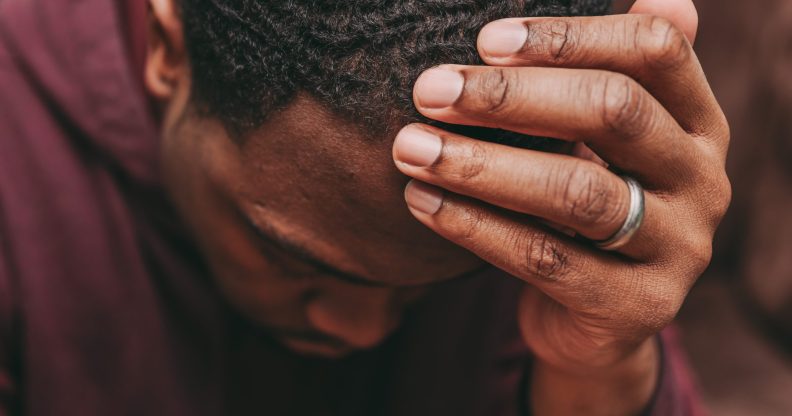Devastating impact of lockdown on LGBT+ mental health laid bare as study reveals seven in 10 are suffering from depression

Mental health problems have skyrocketed among LGBT+ people during the pandemic (Envato Elements)
A new study has laid bare the extent of the mental health crisis faced by the British LGBT+ community amid the coronavirus pandemic.
Dubbed the Queerantine study, the research by University College London and Sussex University found that the vast majority of LGBT+ people struggled with their mental health during lockdown, with younger people confined with bigoted relatives being the most depressed.
Some 69 per cent of the 310 respondents had suffered depressive symptoms during the lockdown, rising to about 90 per cent in those who experienced homophobia or transphobia.
Around a sixth faced discrimination during the pandemic because of their sexuality, and that rate rose to more than a third among those living in homes where they were not open about their identity. Almost 10 per cent of people reported they felt unsafe in their home.
The highest levels of depression were reported by younger trans and non-binary people, but in general the pandemic has had a “pernicious impact” on the LGBT+ community’s mental health, said the study’s co-author Laia Bécares.
“Many had to go back in the closet and live with people who either didn’t know their sexual orientation or gender identity, or were not supportive of it,” she told the Guardian. “The mental health implications are stark.”
Previous studies have shown that LGBT+ people experience higher rates of mental ill-health than their straight and cisgender peers.
For many, the pandemic exacerbated this by separating them from their support networks and forcing them back into the closet to live with abusive or unsupportive family members.
The results of the Queerantine study clearly illustrate a growing crisis, which mental health services say has been building for months.
In July eight UK charities reported a huge surge in LGBT+ users accessing suicide prevention support, with LGBT Hero noting that the number of visitors to its suicide prevention web pages was up by more than 44 per cent on the first three months of the year.
The LGBT Foundation’s helpline received 25 per cent more calls about suicidal thoughts during lockdown, and the Switchboard helpline said their volume of calls was a third higher than the same period last year.
The study called for more government support for LGBT+ charities as they continue to tackle the mental health fallout.
“Poor LGBT+ mental health may remain unchecked without a substantial policy commitment and funding directed to ameliorating health inequalities exacerbated by the pandemic,” it warned.
Suicide is preventable. Readers who are affected by the issues raised in this story are encouraged to contact Samaritans on 116 123 (www.samaritans.org), or Mind on 0300 123 3393 (www.mind.org.uk). Readers in the US are encouraged to contact the National Suicide Prevention Line on 1-800-273-8255.

